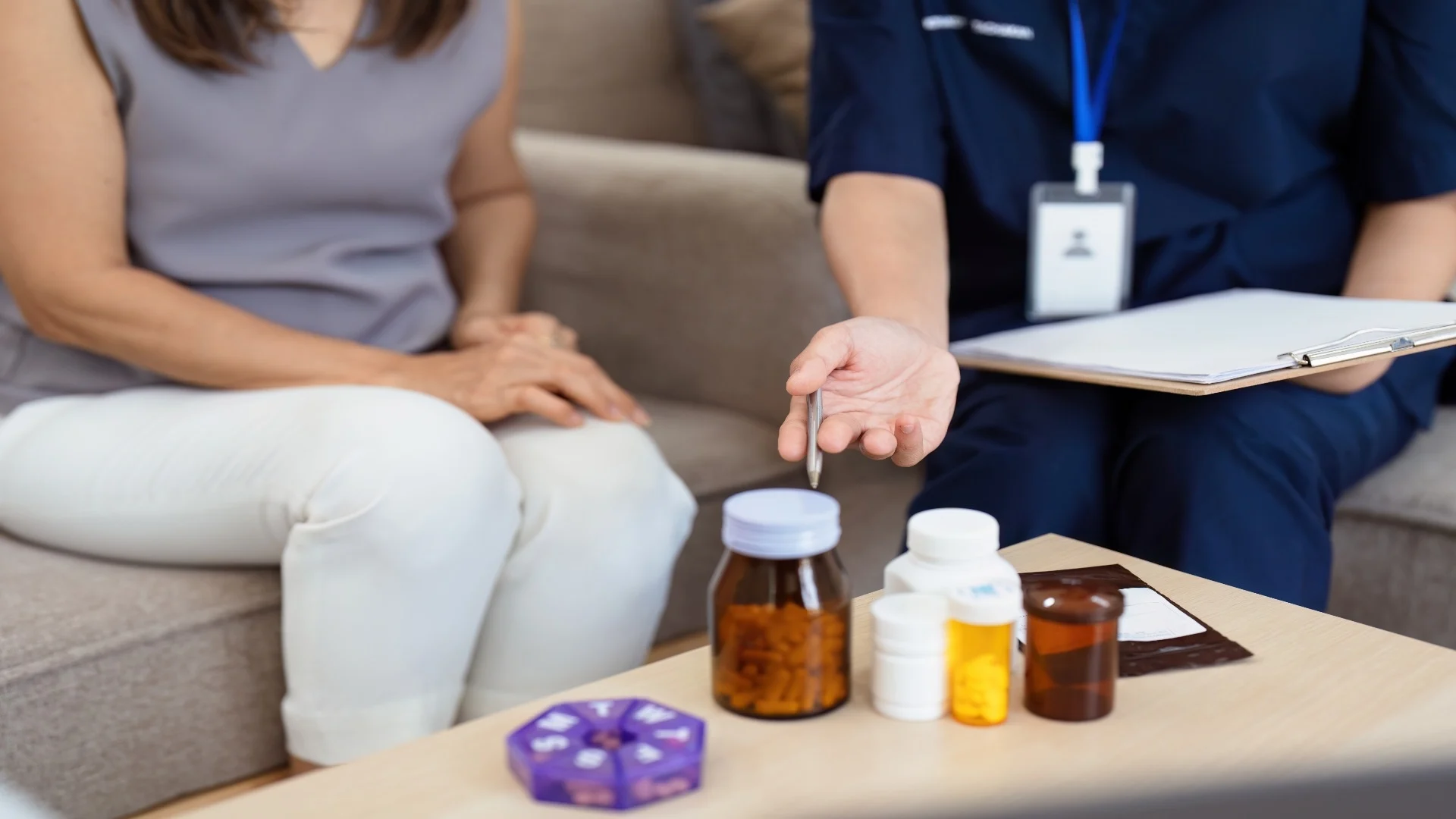Drug and Alcohol
Ibuprofen and Alcohol

How long after taking ibuprofen can you drink alcohol? Discover the answer, potential risks, and why it matters for those in addiction recovery.
How long after taking ibuprofen can I drink alcohol safely?
It’s generally recommended to wait at least 10 hours after taking ibuprofen before drinking alcohol. If you’ve been drinking, wait 24 hours before taking ibuprofen. This helps reduce risks to your stomach, liver, and kidneys, which are essential during recovery.
Can I take ibuprofen with a drink occasionally?
Occasional use of ibuprofen with a small amount of alcohol might carry a low risk for some people. However, it’s never completely safe, especially for those in recovery. The combination can still irritate the stomach or impact liver function, even with moderate use.
What if I take ibuprofen the next day after drinking?
Taking ibuprofen 24 hours after drinking is usually safe for most people. However, suppose you have liver or kidney issues or are in recovery from alcohol use. In that case, it’s best to consult a healthcare provider to avoid complications and support your overall well-being.
Is acetaminophen safer than ibuprofen with alcohol?
Acetaminophen is easier on the stomach than ibuprofen, but it can strain the liver, especially when combined with alcohol. This makes it risky for anyone with liver concerns or in recovery. Always consult a healthcare provider before using either medication with alcohol in your system.
What symptoms should prompt medical help?
Seek immediate medical attention if you experience severe stomach pain, vomiting blood, black or tarry stools, dizziness, swelling, or difficulty breathing after using ibuprofen with alcohol. These may indicate serious internal issues and require urgent medical care, especially during recovery.
How long after taking ibuprofen can you drink alcohol? It’s a common question with profound implications, especially if you’re in recovery or supporting someone who is. While ibuprofen is widely used for pain and inflammation, mixing it with alcohol can increase the risk of stomach issues, liver damage, and other health concerns.
At The Edge Treatment Center, we understand the importance of making safe, informed choices during the recovery journey. This article will help you understand the risks and provide guidance to protect your health or that of someone you care about.
Why Timing Matters
Understanding the timing between taking ibuprofen and drinking alcohol is crucial, especially for those in recovery or those supporting someone who is. Ibuprofen, a nonsteroidal anti-inflammatory drug (NSAID), is commonly used for pain relief, reducing inflammation, and lowering fever.
Once taken, ibuprofen typically remains in the body for several hours. Its half-life is around two hours, but it can take up to ten hours for the drug to be eliminated from your system, depending on factors such as your metabolism, age, weight, and liver function.
Alcohol, on the other hand, is processed differently. It can remain in your system for up to 24 hours or more, and this duration can increase in individuals with slower metabolisms, liver impairment, or co-occurring health conditions.
The overlap between these two substances is significant because they’re both processed through the liver and can have compounding effects on the gastrointestinal tract, kidneys, and overall cognitive functioning.
For people in recovery—especially those with a history of alcohol abuse or liver damage—this interaction can be even more dangerous. That's why, at The Edge Treatment Center, we emphasize the importance of understanding your body, recognizing how substances affect your system, and making informed, deliberate decisions to protect your health and recovery.
Key Risks of Mixing

Mixing alcohol with ibuprofen can lead to several serious health concerns. While you might think a drink or two won't do much harm, the risks go far beyond the occasional stomachache. Here's what you need to be aware of:
Gastrointestinal Issues
One of the most immediate risks of combining ibuprofen and alcohol is stomach irritation. Ibuprofen is known to irritate the stomach lining, even when taken alone.
When alcohol is added to the mix, the risk of gastrointestinal bleeding, ulcers, and stomach pain increases significantly. For individuals with a history of digestive issues or those in recovery, this risk becomes even more pronounced.
Alcohol can weaken the stomach’s protective lining, while ibuprofen can block prostaglandins that usually help maintain that lining, creating a double hit to your digestive system.
Liver and Kidney Damage
While ibuprofen is not primarily metabolized by the liver like acetaminophen, it still poses a risk when paired with alcohol.
The liver and kidneys work overtime to process both substances. Excessive or frequent use of either—especially together—can lead to liver inflammation or kidney strain.
For those recovering from alcohol use disorder, your liver might already be in a vulnerable state, making even a small amount of alcohol combined with NSAIDs potentially harmful.
Impaired Cognitive and Motor Function
Both alcohol and ibuprofen can affect your nervous system. When taken together, they can increase drowsiness, dizziness, and impair your coordination. This may not seem like a serious problem in isolation.
Still, if you’re in a stage of recovery where staying alert, focused, and safe is crucial, these side effects can interfere with daily tasks or lead to accidents and injury.
At The Edge Treatment Center, we help our clients understand the risks associated with mixing substances, including both legal and over-the-counter substances.
Recovery isn't just about abstaining from addictive drugs or alcohol—it’s about making holistic, thoughtful decisions that support your physical and emotional well-being.

We’re Here To Help You Find Your Way
Would you like more information about mental health or drug addiction? Reach out today.
Recommended Wait Times
So, how long after taking ibuprofen can you drink alcohol safely? While individual factors will vary, there are general timelines you can follow to reduce your risk.
After Taking Ibuprofen
If you’ve taken ibuprofen and are considering drinking alcohol, the safest recommendation is to wait at least 10 hours before consuming alcohol.
This allows the medication to be mostly cleared from your body, reducing the risk of gastrointestinal or kidney complications. However, if you’ve taken a higher dose or you take ibuprofen regularly, it may take even longer for your system to be clear.
After Drinking Alcohol
On the flip side, if you've had alcohol and are thinking about taking ibuprofen for a headache or pain, it’s best to wait a full 24 hours before doing so. This ensures the alcohol has left your system and lowers the risk of internal bleeding or other adverse reactions.
A Word of Caution for Those in Recovery
While moderate users may take a calculated risk, individuals in recovery should exercise extra caution. Even small amounts of alcohol can trigger a relapse or create a dangerous chain reaction with medications.
At The Edge Treatment Center, we strongly encourage you to speak with a healthcare provider about safer alternatives for pain relief if you’re recovering from alcohol use or mental health issues.
It’s also worth noting that “safe” windows don’t guarantee safety for everyone. Your personal health history, any medications you may already be taking, and the state of your liver and kidneys all affect how your body processes substances.
Practical Guidance for Recovery
For someone in recovery, it’s not just about what’s safe—it’s about what supports long-term healing. At The Edge Treatment Center, we don’t just help people stop using drugs or alcohol; we help them build sustainable, healthy lifestyles that support lifelong recovery. When it comes to over-the-counter medications like ibuprofen, here’s how we guide our clients:
Talk to a Medical Professional First

If you’re unsure about taking ibuprofen or drinking alcohol after using it, consult your doctor or a treatment provider. It’s crucial to talk to someone if you’re on any kind of recovery medication (such as naltrexone or disulfiram), as these can interact poorly with both ibuprofen and alcohol.
Medical supervision is crucial, especially when managing physical pain during early recovery. We work with clients to identify pain management strategies that don’t rely on potentially harmful substances.
Consider Safer Alternatives
Several safer, non-medication-based approaches to pain relief can be used during recovery. These include:
Physical therapy or exercise for musculoskeletal pain
Mindfulness and meditation for tension-related discomfort
Hot or cold therapy, depending on the type of pain
Nutrition and hydration to support overall health and reduce inflammation
In some cases, acetaminophen may be considered a safer alternative, but even this carries risks, especially to the liver. Always discuss options with a healthcare provider who understands your recovery background.
Know the Warning Signs
If you’ve already combined alcohol and ibuprofen and are concerned about side effects, there are symptoms you should never ignore. Seek medical attention immediately if you experience:
Severe stomach pain
Vomiting blood or black-colored stool
Persistent dizziness or confusion
Swelling in the hands, feet, or face
Trouble breathing
Your health is too important to ignore these signs. At The Edge Treatment Center, we’re here to provide compassionate support and expert care, whether you need help managing pain or navigating a difficult moment in your recovery

We’ll Lead You to New Heights
Do you have more questions about mental health or drug addiction? Reach out.
Ibuprofen and Alcohol: Risking More Than Relief? We’re Here to Help
Combining ibuprofen and alcohol may seem harmless, but the risks—especially during recovery—can be severe. Whether it’s physical health, emotional stability, or maintaining sobriety, your choices matter. At The Edge Treatment Center, we understand how difficult recovery can be and how easily small decisions can lead to setbacks.
If you or someone you care about is struggling with substance use, we're here to help. Our personalized treatment plans are built to support your healing and guide you toward a safer, healthier future—free from addiction. Reach out today. You don’t have to do this alone.

We’re Here To Help You Find Your Way
If you or a loved one is struggling with addiction, there is hope. Our team can guide you on your journey to recovery. Call us today.
Written by
The Edge Treatment Center
Reviewed by
 Jeremy Arzt
Jeremy ArztChief Clinical Officer
Drug and Alcohol
October 1, 2025
